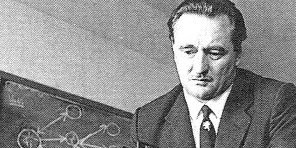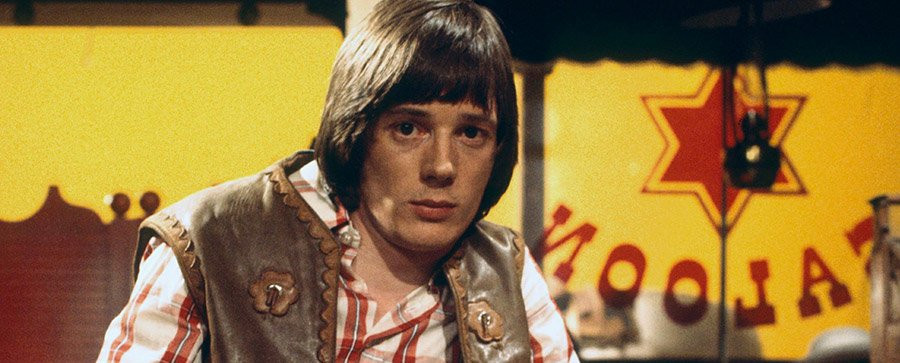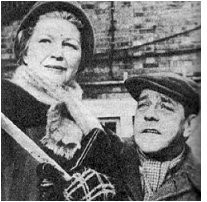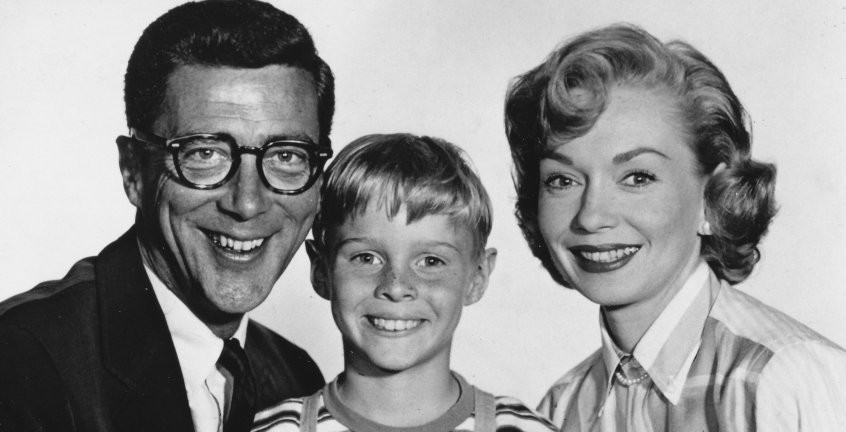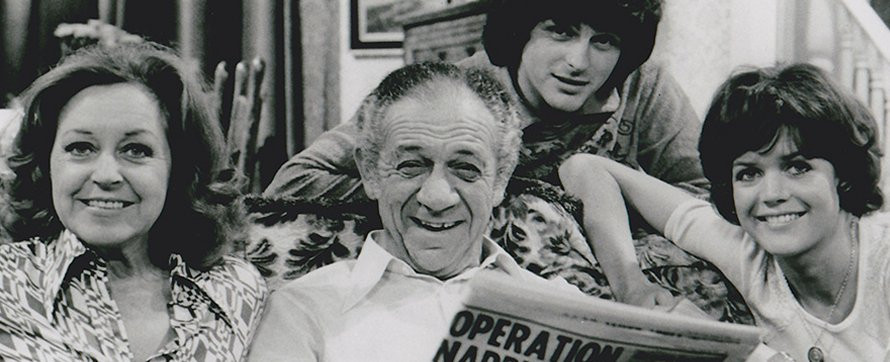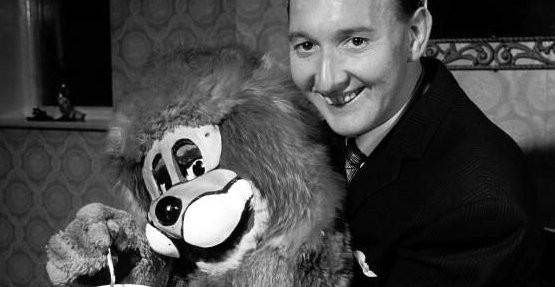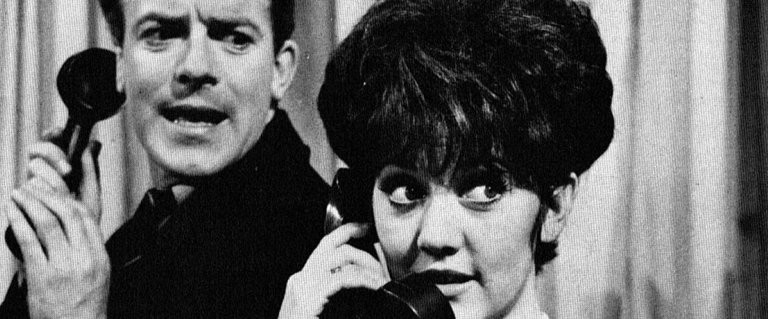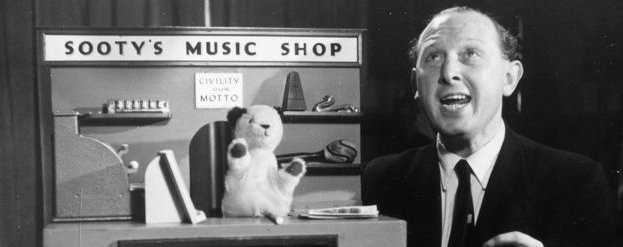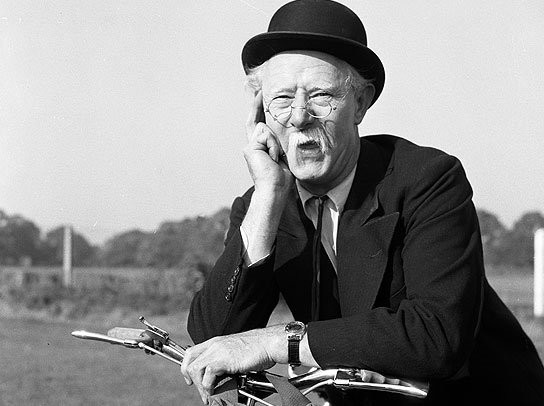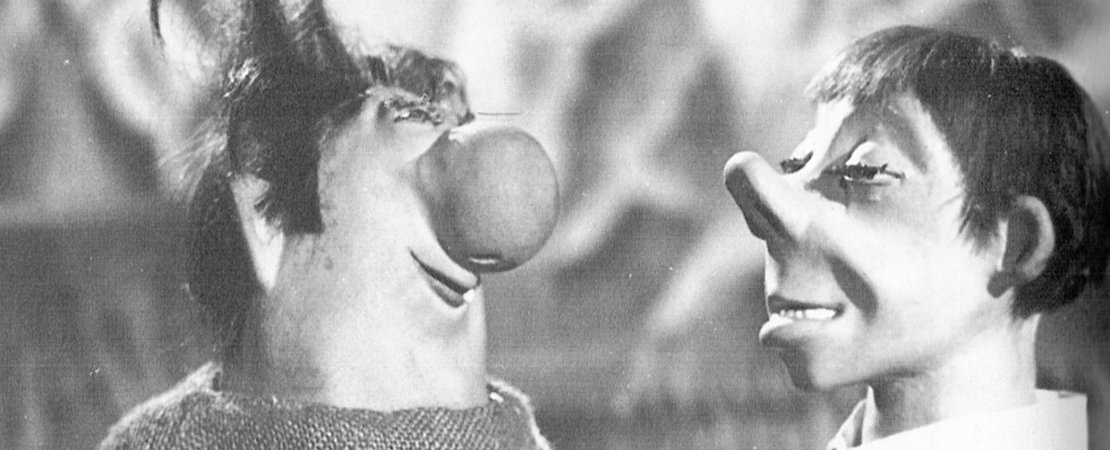
The Telegoons
1963 - United KingdomPuppet version of radio's immortal Goon Show written by Spike Milligan and voiced by the original show's members, Peter Sellers, Harry Secombe and Milligan.
This TV version was mostly made up of scripts from the old radio series, edited down to 15 minutes by Maurice Wiltshire. The sound tracks were freshly recorded by The Goons in early 1963, which brought them back together again for the first time in several years. The television series finally put faces to the voices that had been enthralling the radio fans for years and won a new, younger generation of followers, from the ages of 7 to 17.
From the outset it was the intention of the show's producers to re-use the original radio series recordings until the BBC scuppered this idea by refusing permission. However, due to the fact that a recording of the radio show, 'Tales of Manhattan' was used as the soundtrack of the initial 31-minute version of The Telegoons pilot film, many TV historians were misled into believing that the original soundtracks had been used with all of the episodes, with new material being recorded only where needed. In the absence of good historical information about The Telegoons this rumour had persisted for many years. We now know that prior to being transmitted as the second episode, the pilot film, 'The Lost Colony' was heavily edited, and the soundtrack completely replaced by a new recording. The other episodes all had brand new recordings from the outset. This new information came to light due to the excellent research of Alastair Roxburgh, (owner of www.telegoons.org -see links page), who managed to track down six of the original crew.
Neither was the radio series simply transferred to television without some changes taking place. Television script writer Maurice Wiltshire added a good amount of visual humour as suited the TV medium, the musical interludes were deleted, and a brand new theme and musical effects were written by Ed White. A humorous opening scene was placed ahead of the main story, which usually had very little to do with the main plot. The job of announcer (which was usually done by Wallace (Bill) Greenslade in The Goon Show) fell to Grytpype-Thynne (voiced by Peter Sellers).
Contrary to several published histories, we also now know that Spike Milligan gave final approval to the look of the puppets, which were designed and built by Ron Field (who also invented the electronic lip synch system used in the later episodes), and Ralph Young. On the subject of the puppets, one further interesting point is that the rate of delivery used in the radio show had to be slowed down to match the speed of the puppets. All told, twenty-six of the more popular Goon Shows, such as 'China Story,' were translated quite successfully to the television puppet format.
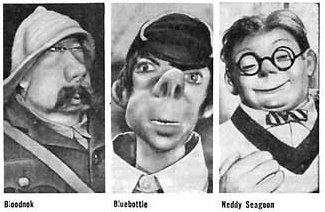
The original stars of the Goon Show have since passed into comedic legend. Spike Milligan went on to star in a series of manic sketch shows under the title Q, starting with Q5 and working his way up in subsequent series to Q9. He also wrote a number of sketch shows as starring vehicles for fellow Goon Peter Sellers (see reviews of The Idiot Weekly, Price 2d and A Show Called Fred). Milligan starred in the Johnny Speight sitcom Curry and Chips, and wrote a mini-saga for The Two Ronnies called 'The Phantom Raspberry Blower of Old London Town'.
Harry Secombe starred in his own mixture of song and sketch shows for both ITV and BBC (the British Film Institute recently acquired a recording of a previously unbroadcast Harry Secombe and Friends show featuring both Milligan and Sellers in a twenty-eight minute edition of The Goons - search YouTube for it) the most popular of which was The Harry Secombe Show, before hosting the Sunday night religious travelogue Highway. He also appeared in Lionel Bart's Oscar winning movie 'Oliver' playing the part of Mr. Bumble the Beadle. He was later knighted. Peter Sellers went on to win world-wide acclaim with a succession of famous movie roles, not least of which was Inspector Clousseau in the 'Pink Panther' series. In a television interview with Michael Parkinson a short time before he died Sellers recalled his time spent on the Goon Show as "the happiest of my life."
Published on February 6th, 2019. Written by Laurence Marcus and Alastair Roxburgh (2003) for Television Heaven.


